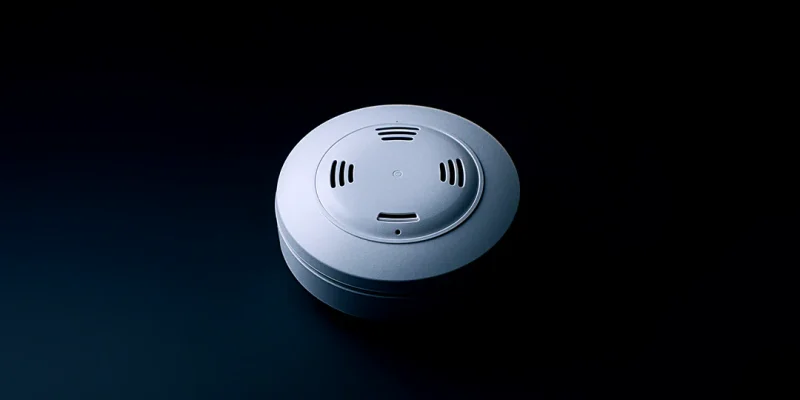Do Smoke Detectors Detect Vapor? Everything You Need to Know

Smoke detectors are essential for home safety, designed to warn us of potential fire hazards. But if you vape, take hot showers, or use a humidifier, you might wonder: Do smoke detectors detect vapor? The short answer is sometimes — depending on the type of detector and the density of the vapor.
This guide explains:
- How smoke detectors work
- Whether vapor can trigger them
- Common causes of false alarms
- Tips for avoiding unnecessary alerts
How Smoke Detectors Work
There are two main types of smoke detectors:
Ionization Smoke Detectors
- Detect fast, flaming fires.
- Use a small amount of radioactive material to sense changes in air particles.
- Sensitive to tiny particles from combustion — and sometimes vapor.
Photoelectric Smoke Detectors
- Detect slow, smoldering fires.
- Use a light beam inside a sensing chamber.
- When particles scatter the light, it triggers the alarm.
- Can also be triggered by dense vapor or steam.
Smoke vs. Vapor: What’s the Difference?
- Smoke – Produced by combustion, containing microscopic soot and solid particles.
- Vapor – A suspension of liquid droplets in air (from e-cigarettes, boiling water, or steam).
While smoke contains burnt material, vapor is made of condensed water or liquid droplets — but in high enough concentrations, vapor particles can mimic smoke particles in a detector’s sensor.
Can Vapor Trigger a Smoke Detector?
Yes, vapor can sometimes set off a smoke alarm, especially:
- In photoelectric detectors, where dense vapor scatters light inside the chamber.
- In ionization detectors, if vapor particles are small enough to disrupt the ion flow.
Common situations:
- Vaping indoors near a detector.
- Steam from showers in small bathrooms.
- Humidifiers releasing heavy mist near alarms.
- Cooking vapor from boiling pots.
Why Vaping Indoors Can Set Off Alarms
E-cigarette vapor contains propylene glycol, vegetable glycerin, and tiny liquid droplets that can scatter light in photoelectric sensors or interfere with ionization detectors. While less likely than cigarette smoke to cause an alarm, dense clouds close to a detector can trigger it.
Preventing False Alarms from Vapor
- Increase Distance – Avoid vaping, steaming, or boiling directly under a smoke detector.
- Ventilate the Room – Open windows or use fans to disperse vapor quickly.
- Relocate Detectors – In high-humidity areas like kitchens or bathrooms, position alarms farther from vapor sources.
- Use Heat Detectors – In kitchens, a heat detector can reduce false alarms.
- Regular Maintenance – Dust and clean smoke detectors to avoid sensor blockage.
When to Be Concerned
If your smoke alarm goes off without any vapor or smoke present:
- The sensor may be dusty or malfunctioning.
- The battery could be low (chirping sound).
- It might be time for a replacement — most alarms should be replaced every 8–10 years.
Conclusion
Smoke detectors are designed to detect particles in the air — and while their primary purpose is to sense smoke from fires, dense vapor from vaping, steam, or humidifiers can sometimes trigger them. Understanding how they work and taking preventive steps can help you avoid false alarms while keeping your home safe.
FAQs
1. Can vaping set off a smoke detector in a hotel?
Yes, especially if the vapor is dense and the detector is nearby. Many hotels have strict no-vaping policies.
2. Does steam from the shower set off smoke detectors?
Yes, in small or poorly ventilated bathrooms, steam can mimic smoke particles.
3. Which smoke detectors are less sensitive to vapor?
Ionization detectors are generally less sensitive to large vapor droplets than photoelectric detectors, but both can be triggered.
4. Will a heat detector replace a smoke detector?
No — heat detectors are good for avoiding false alarms in kitchens, but they don’t replace smoke detectors for fire safety.
5. How can I tell if my smoke detector is dirty or malfunctioning?
Frequent false alarms without any smoke or vapor could indicate dust buildup or a failing sensor.
Also read: Gene Variants Crossword: Clues, Answers, and Solving Tips











